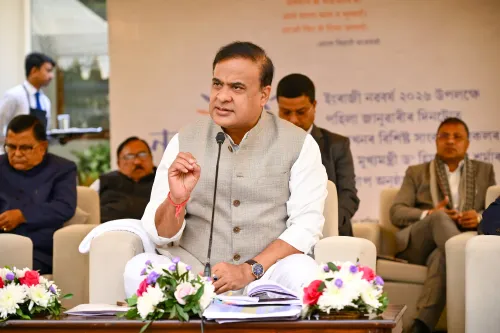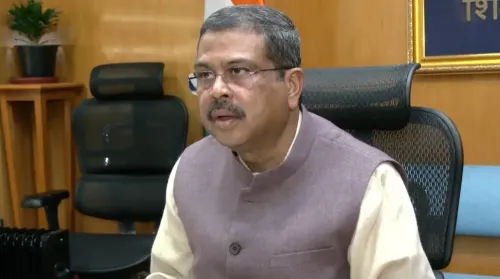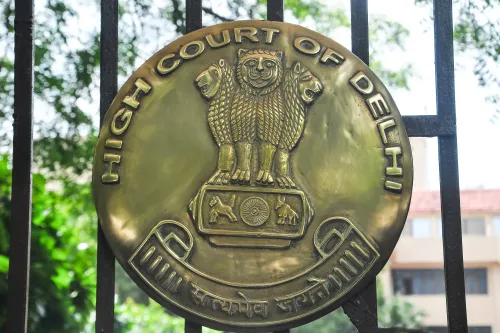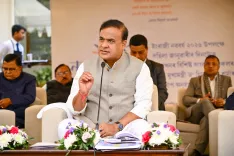Governor R.N. Ravi Highlights Language Policy Issues in Tamil Nadu
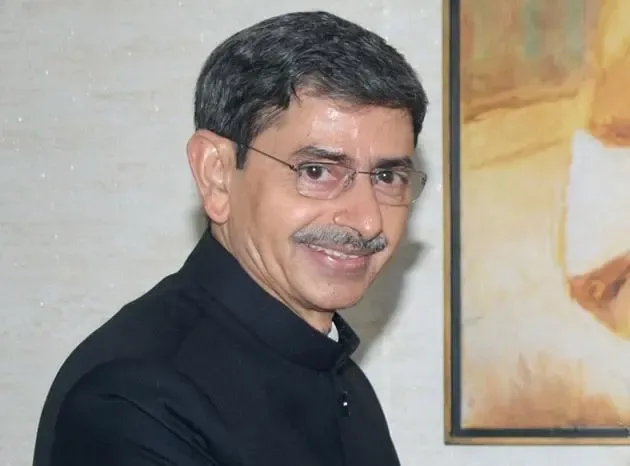
Synopsis
Key Takeaways
- Governor R.N. Ravi criticizes the two-language policy.
- Claims it disadvantages Tamil Nadu students.
- Emphasizes the need for the National Education Policy (NEP) 2020.
- South Tamil Nadu feels neglected despite its resources.
- Calls for broader language choices for students.
Chennai, Feb 28 (NationPress) The Governor of Tamil Nadu, R.N. Ravi, has voiced his concerns regarding the state's stringent two-language policy, arguing that it disadvantages students when compared to their counterparts in neighboring regions.
In a recent social media update on Friday, Tamil Nadu Raj Bhavan expressed a strong dissent against the state government's two-language approach.
The Governor mentioned having engaged with numerous leaders from diverse sectors in South Tamil Nadu, including education, business, healthcare, hospitality, startups, women entrepreneurs, and MSMEs.
He commended their enthusiasm and innovation in improving lives despite facing systemic hurdles, but noted that South Tamil Nadu, rich in human and natural resources, resembles a “neglected backyard.”
Governor Ravi raised alarms about the absence of industrial opportunities in the area and the escalating issue of substance abuse among the youth.
He also pointed out a significant demand for the implementation of the National Education Policy (NEP) 2020. He stated, “Regrettably, in the guise of opposing Hindi, students in Tamil Nadu are not even permitted to learn other South Indian languages. This is inequitable. Our youth should have the liberty to select the languages they wish to acquire.”
The Raj Bhavan reaffirmed that many residents in South Tamil Nadu feel deprived of opportunities due to the existing language policy.
This statement from the Governor follows the remarks from Tamil Nadu Chief Minister and DMK President M.K. Stalin, who has consistently asserted that the state government will resist the imposition of Hindi.
In a letter addressed to party members, CM Stalin remarked that while Hindi is portrayed as a “mask,” the underlying aim of the language policy is to promote Sanskrit.
The DMK has persistently opposed the Centre's three-language formula under NEP, contending that it coerces Hindi on states where it is not predominantly spoken.
CM Stalin further claimed that Northern Indian languages such as Maithili, Brajbhasha, Bundeli, and Awadhi have been marginalized due to what he termed the “hegemonic expansion” of Hindi and Sanskrit.
He argued that more than 25 indigenous languages in Northern India have vanished due to this dominance.
He credited the century-old Dravidian movement for safeguarding the Tamil language and culture through ongoing awareness efforts and protests.
CM Stalin also alleged that the Central government is advancing Hindi and Sanskrit under the guise of educational reforms.
In response to the BJP's assertion that NEP allows students to choose a foreign language as a third option, CM Stalin claimed that, in reality, Sanskrit is being imposed in various states.
The discourse surrounding language policies in Tamil Nadu persists, with the state government resolutely opposing the NEP while the Governor advocates for reforms to broaden linguistic options for students.


